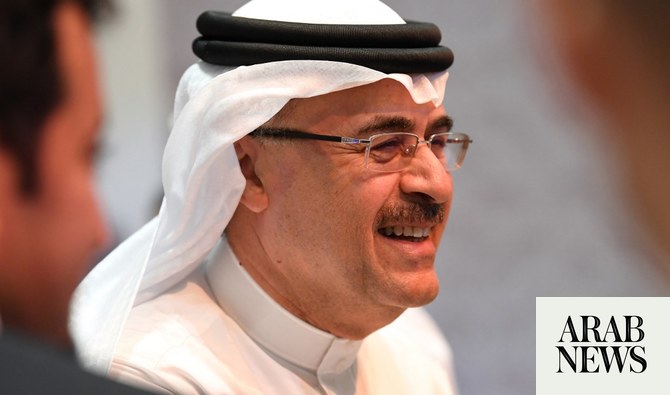RIYADH: Global markets need to accept that spare capacity from oil producers is very low, the CEO of Saudi Aramco has warned.
Speaking at the Energy Intelligence Forum in London on Oct. 4, Amin Nasser put spare capacity at 1.5 percent of global demand, and added that this will be used up the moment China’s economy opens up from COVID-19 restrictions.
He said it was not just Saudi Arabia’s responsibility to provide extra supply.
“(The market is) focusing on what will happen to demand if recession happens in different parts of the world, they are not focusing on supply fundamentals,” Nasser said, later adding: “The world should be worried. This is where we are heading. If China opens up a little bit you will find out that spare capacity will be eroded completely.”
He noted that Aramco is on track to increase its capacity to 13 million barrels a day from 12 million by 2027, a project that is expected to cost billions of dollars.
Nasser’s concerns were echoed by Shell CEO Ben van Beurden, who said current high prices do not easily translate into a shift in capital allocation given it can take decades for oil and gas projects to produce and start paying off.
“You cannot have a quick response to the market signals we are seeing today,” van Beurden said at the same event, adding that Shell’s overall strategy remained to pivot away from oil and gas products.
“We cannot live in this world without spare capacity.”
If he had a spare $1 billion to spend, he would invest in the “energy system of the future,” said van Beurden, who will leave Shell next year.
Nasser said alternatives to replace oil and gas are not ready yet, and he made clear that measures should be taken to decarbonize oil and gas, along with developing carbon capture and storage technology.
Saudi Aramco, which is one of the biggest players in the global oil market, is now planning to maintain its Asian market, despite rising European demand, Nasser added.
During his speech, Nasser said that the primary problem Europe faces now is related to gas and liquified gas due to the lack of spare capacity.
“We need to build up some spare capacity in oil, gas and LNG. Otherwise, any outages or increased demand will seriously stretch producers and could cause more turmoil in markets,” he added.
Nasser further noted that Aramco is planning to begin gas exports including blue hydrogen, and talks are currently going on with customers in East Asia, Japan, and South Korea.
He made it clear that Aramco is targeting customers who are willing to sign offtake agreements with a validity of 15 to 20 years.
In September, while attending a forum in Switzerland, Nasser said that the insecurity in the energy sector is due to the lack of investments, and capping energy bills and taxing oil companies are not long-term solutions to the global energy crisis.



